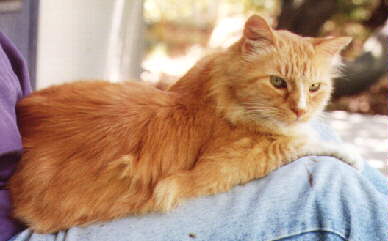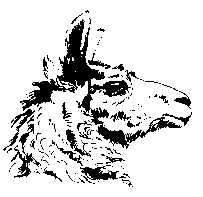"Cat World: A Feline Encyclopedia" by Desmond Morris (Penguin, 1997) is a beautiful book for the serious cat lover. Full of color photographs and illustrations, the encyclopedia contains almost 1,000 entries covering all 80 breeds of domestic cats plus nuggets of information on feline anatomy, behavior, biology, folklore, history, literature and art.
Morris, a trained zoologist, was the curator of mammals at the London Zoo from 1959 to 1971, where he was responsible for the largest collection of wild felines in the world. He has been associated with many British TV shows about companion animals. He also has a personal collection of nearly 500 books on cats and includes in this volume an entry called "the 100 best cat books" from 1727 to present.
I find the entries explaining animal behavior to be the most interesting. For instance, why do my cats sometimes reject their food, food they ate with great gusto the day before?
Morris supplies several possible answers. First , realize that cats like to eat small meals on frequent occasions, not because they want to inconvenience their owner (although they want to do that, too) but because their natural diet in the wild consists of small rodents. Try serving your cat a mouse-size portion of cat food (squeaking at the same time may help, too).
Morris warns that your cat may not be eating at home because he or she is eating at a subsidiary owner's house.
"Cats that do the rounds of friendly humans often show fluctuations in their hunger levels that are inexplicable to their true owners," he writes.
I can attest to that. I was once approached by a man down the street who managed to imply that I was neglecting my oldest cat. "He comes to my house for lunch every day," the neighbor said. "What do you feed him?" I asked.
"Shrimp," he beamed.
Well, no wonder. I'd like to have lunch there, too, but instead I suggested that if he stopped dispensing luxury food items, my cat would probably eat at home. He did and the problem was solved. Morris also said that cats like a variety in their diet.
"In the wild this prevents them from becoming totally dependent on one particular source of food and also gives them a slightly more varied and therefore nutritionally safer diet," he said. Morris says cat owners unwittingly keep their domestic, companion cats in a suspended state of kittenhood by the very way they are cared for. This isn't necessarily a bad thing, but it requires some understanding.
For instance, when I come home from a hard day at work and flop down on the sofa to read the newspaper, it's only a matter of seconds before one of the cats jumps on my lap and begins "kneading and treading."
Kneading, of course, is a reversion to kittenhood, food time at mother cat's nipple. The cat is so happy that it may emphasize its mood by drooling and dribbling.
"From the cat's point of view, this is a warm, loving moment, but when the human lap on which it is pressing becomes pricked with sharp claws and dampened with cat-dribble, the contented animal sometimes finds itself unceremoniously placed on the floor."
Yes, guilty as charged - and Morris chides the owner who behaves so callously.
"No good cat mother would behave in such a negative way," he warns. "This is a classic example of the way in which interactions between humans and cats can lead to misunderstandings."
He says these conflicts can be avoided if owners recognize the fact that an adult domestic cat always remains a kitten in its behavior toward its pseudo-parental owner. I think that gives the cat too much power but, OK, anything to keep the peace. Sharp claws and drool are part of the contract.
It seems that some people, however, just do not like cats. William Shakespeare and Dwight D. Eisenhower hated cats. Napoleon Bonaparte feared them.
But cats made Edward Lowe of Michigan a very, very happy man. Lowe was working in his father's business when a woman came in and asked for a bag of sawdust for her cat's litter box. Lowe noticed that granulated clay soaked up grease spills at work, so he gave the woman a bag of clay. It worked so well that she came back for more. When Lowe died in 1995 he had developed his Kitty Litter business into an empire with an annual turnover of half a billion dollars. Meow.

 <--Return to Dr Sue's Home Page,
<--Return to Dr Sue's Home Page,